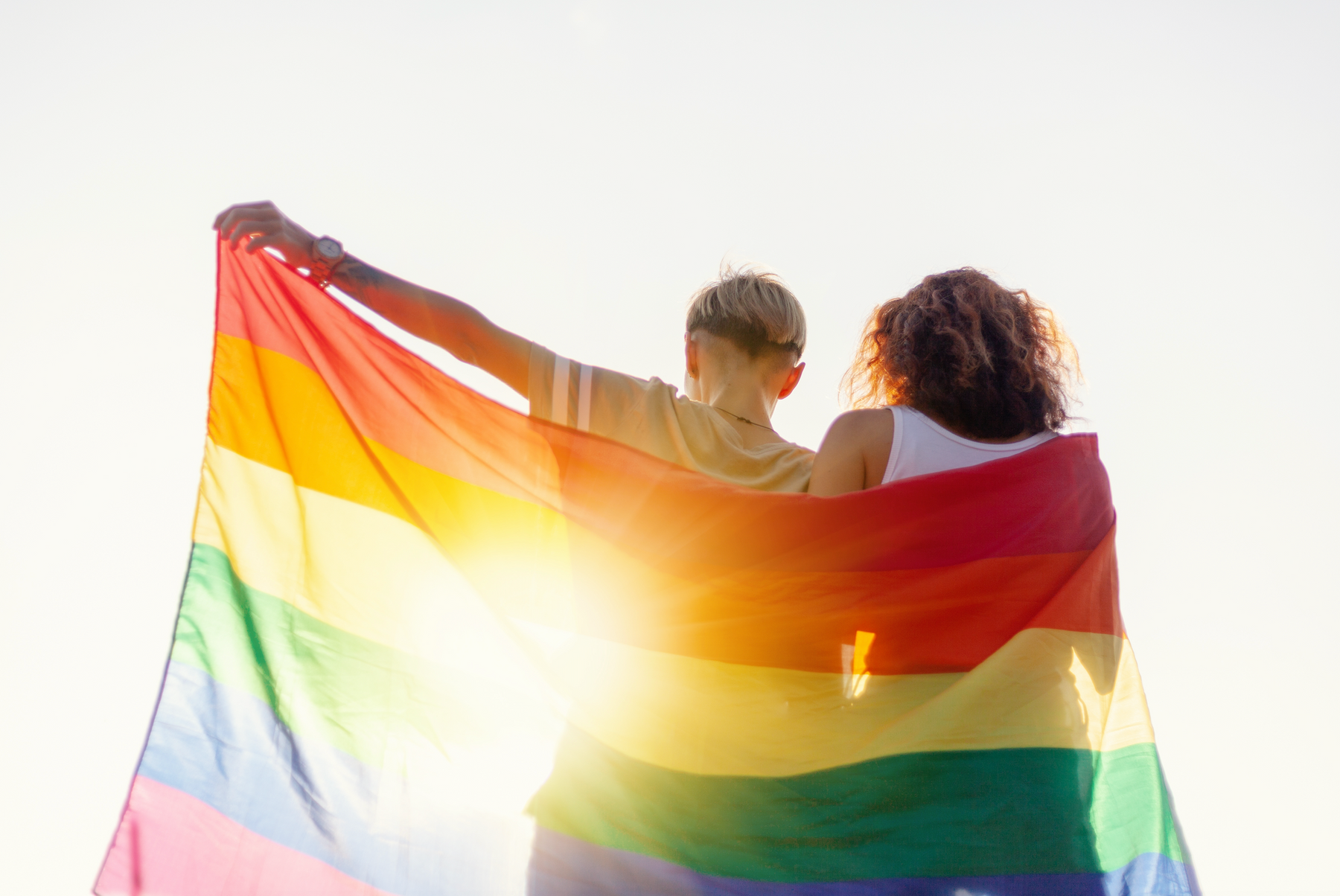Lets welcome in the New Year with a special discount. £10 off all orders over £70 with code NEWYEAR26
Lets welcome in the New Year with a special discount. £10 off all orders over £70 with code NEWYEAR26

While Pride month might be coming to a close, the conversation around mental health, and by extension, body image in the LGBTQ+ community is one that should be happening all year round.
With the exclusion, rejection, stigma, discrimination as well as the homophobia, biphobia and transphobia that many in the LGBTQ+ community face, it’s no wonder that those who identify as LGBTQ+ are some of the most at risk when it comes to mental health issues. This can, inevitably, have an impact on how people see themselves.
As mentioned in our previous blog about the impact that body image has on happiness, low self-esteem can have a significant effect on your body image, which can then have further negative consequences for your mental health. It seems that in the LGBTQ+ community, this can, unfortunately, be quite common. According to a study by the mental health foundation on body image, “among adults who identified as gay, lesbian, bisexual or other, 53% felt anxious and 56% felt depressed because of their body image compared to one third (33%) of the adults who identified as heterosexual”.
So, it’s unsurprising, if not heartbreaking that, looking at research by NEDA, “beginning as early as 12, gay, lesbian, and bisexual teens may be at higher risk of binge-eating and purging than heterosexual peers.”
Particularly for gay and bisexual men, there’s a common pressure to be fit and muscular, due to the cultural importance that they place on having a good body for both themselves and potential partners, as well as the pressures of social media and online affirmation. Because of this, it can feel near impossible for many to be happy with their body.
And when it comes to the body image issues transgender people may experience, it can be even more of a complex conversation as for many, on top of the other problems related to body image, gender dysphoria is something that gives many extreme distress as their biological sex doesn’t align with their gender identity.

So, how can we put a stop to this horrible trend of body image issues? Ultimately, it comes down to how we talk about bodies, whether they’re the bodies of people we know or the bodies of celebrities and strangers. It’s important to think about the kind of language that you use to talk about your and other people's bodies! Chances are if you talk negatively about other bodies, you’ll apply the same level of judgement to your own. Plus, if we’re ever going to stop this negative culture of body shaming - it needs to stop.
The ways to improve your body image that we suggested in our previous blog on body image are just as applicable here, but here are a few more ways to help your perception of your body image:
Don’t forget, everyone deserves to feel comfortable in their own skin - and that includes you.
Here at Noogleberry, we understand that some of us require a little help when it comes to accepting and loving our bodies - that’s why we’re here to help. We provide a range of vacuum enlargement and erection systems, designed to help you feel better in your skin.
Got any questions? Get in touch with a member of our friendly team today!